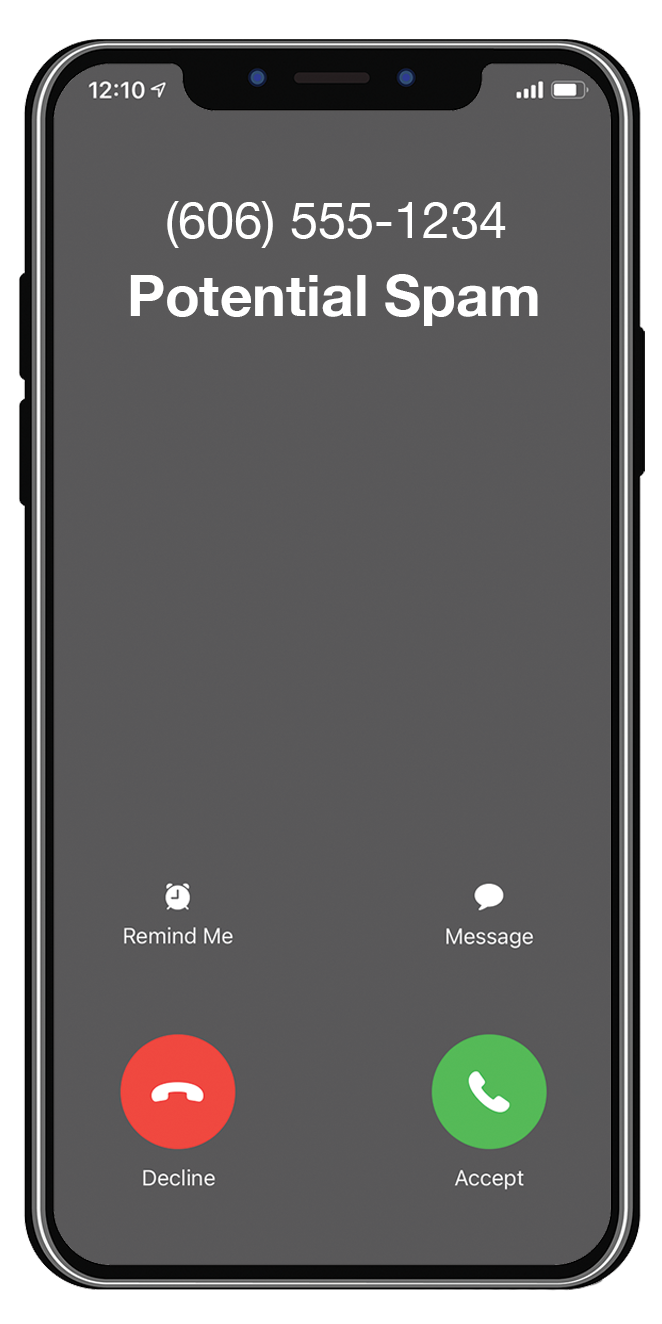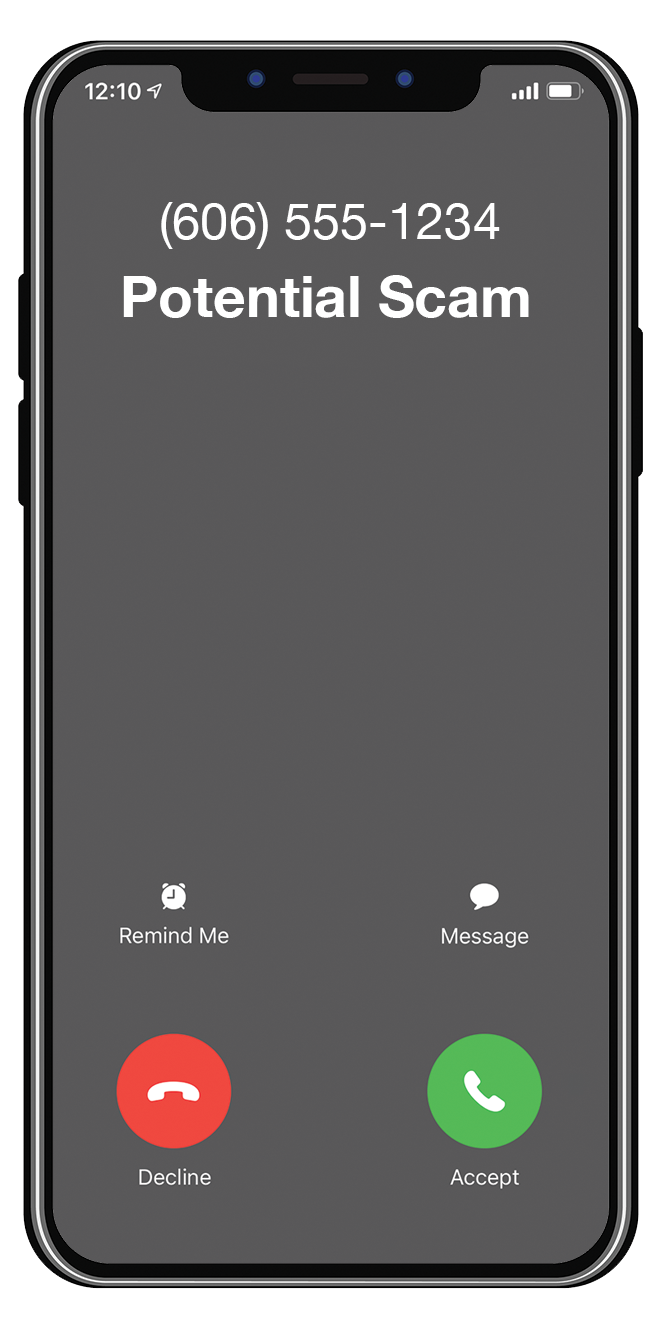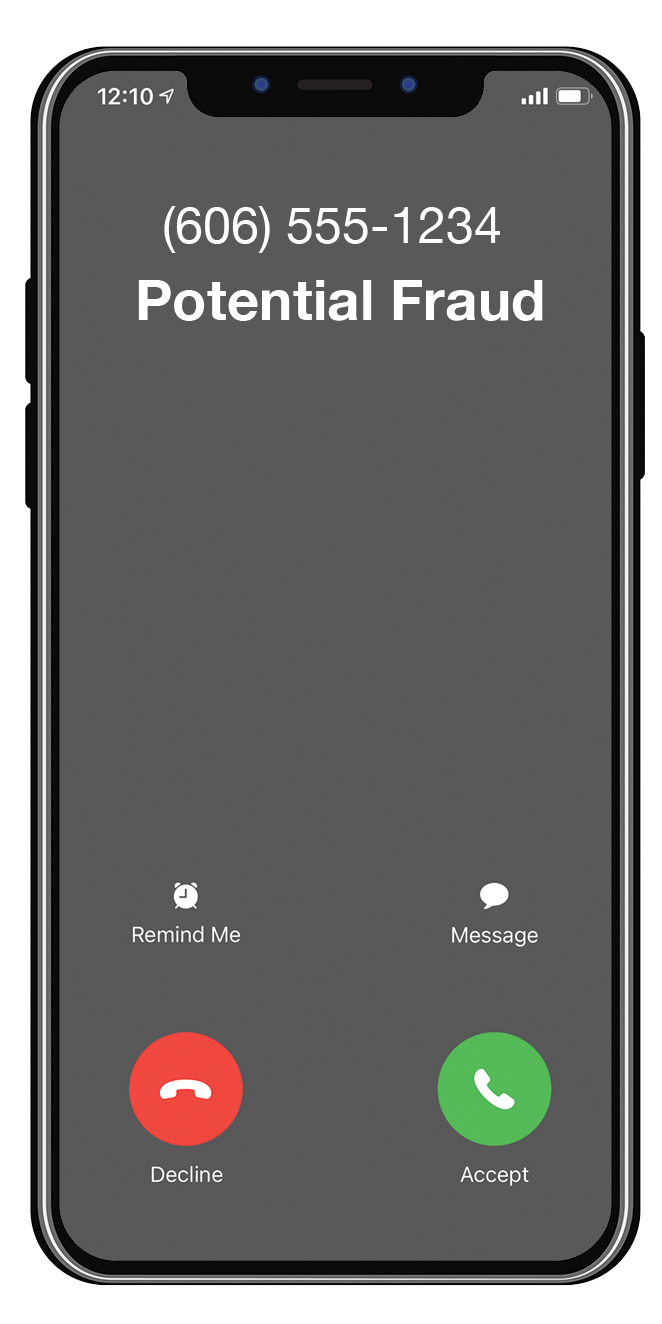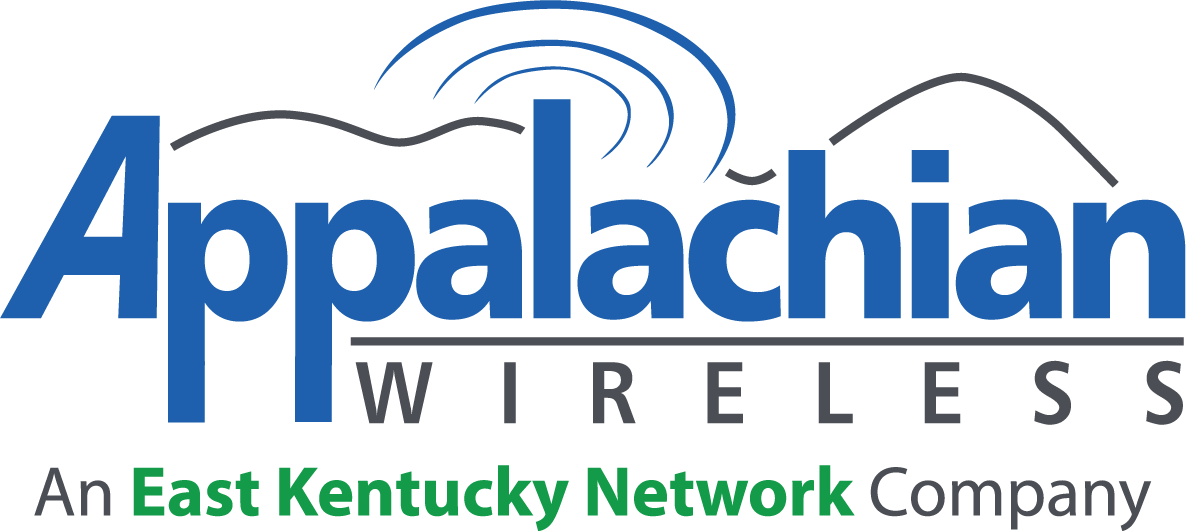
Call Guardian
Helping you identify potential spam/robocalls for free with our Advice of Risk service
Here's how we're keeping you protected.
While there may not be a single answer that entirely ends these activities, we're fully committed to fighting the scourge of robocalls. We are starting to curb the increase in robocalls by implementing several steps in putting a stop to robocalls.
- Appalachian Wireless is providing a free Advice of Risk feature that identifies nuisance calls to you by leveraging the Caller Name field to overlay a warning that will alert you of a potential spam call.
- Appalachian Wireless uses STIR/SHAKEN technology to update our spam detection algorithm. STIR/SHAKEN is a caller ID authentication framework to help protect you against malicious caller ID information, which is often used during robocall scam campaigns to trick consumers into answering their phones.
-
Pursuant to FCC Orders 17-151, 20-187, and 25-15, Appalachian Wireless blocks certain types of calls, including those from numbers that are fake or highly likely to be illegal. The calls we block include calls from:
- Do-Not-Originate (DNO) Numbers – Numbers that should never make outgoing calls.
- Unassigned or Unallocated Numbers – Numbers that haven’t been given out by official numbering agencies or aren’t currently in use.
- Invalid Numbers – Numbers with incorrect area codes or short dialing formats.
- Malformed Numbers – Numbers that are too short, contain letters (like fax1234), or have repeated digits (like 000-000-0000).
In addition, calls flagged as high-risk by the TNS Call Guardian® system – based on how often and when they’re made – can also be blocked. This helps stop scams and keep customers safer.
- Appalachian Wireless supports legislation including the TRACED Act which gives the FCC and enforcement agencies greater authority to go after scammers.
- Additionally, we support the Truth in Caller ID Act which allows the government to charge robocallers with illegal “spoofing” once they prove the caller intended to defraud, cause harm, or illegally obtain something of value.



What is a robocall?
If you receive a phone call that delivers a pre-recorded message and not a live person, it’s a robocall. The term robocall is often used to reference other types of calls made by spammers, spoofers, scammers, and more.
Are all robocalls illegal?
No, some robocalls are wanted like the examples listed below under positive robocalls. A few types of robocalls are allowed under the Federal Trade Commission (FTC) rules without your permission, like political calls about candidates running for office or charities asking for donations.
What type of robocalls are there?
A positive robocall presents no harm to subscribers; some of these robocalls may even be wanted/needed. Examples include public service announcements, appointment confirmations, and prescription refills.
A nuisance robocall isn’t indicative of malicious intent or illegal, but might be a call that you don't want to answer all the time. Examples include promotional offers, solicitation, and accounts receivable.
A high-risk robocall often includes loss of money, invasion of privacy and identity theft. These callers are trying to gain a person’s trust to prey on them. Examples include spammers, spoofers and scammers.
- Spammers place automated phone calls in a manner that is in willful non-compliance with state and federal laws governing the use of automated dialing.
- Spoofers knowingly transmit misleading or inaccurate Caller ID information. These calls may be placed manually or through an auto-dialer. Spoofers often use various methods to mask their telephone number to show a completely different number-often a number that may be local or familiar to you.
- Scammers disregard state and federal laws to make calls with the intent of committing identity theft or other types of fraudulent behavior.
How bad is the robocalling problem?
Transaction Network Services (TNS) estimates that nearly 100 billion unwanted robocalls were made over the last 12 months. You can view the different types of robocall scams here to stay educated and try to avoid being a victim of these nefarious bad actors.
How are these harmful robocalls identified?
The Call Guardian® solution relies on data from multiple sources utilizing our analytics partner, TNS. TNS analyzes robocall data from more than one billion daily call events across hundreds of telecom providers. Because of this volume of data, TNS can extract insights on emerging robocall tactics and trends. Learn about the latest robocall scams here.
Call Guardian® is a registered trademark of Transaction Network Services. All Rights Reserved.
How can I report a malicious robocall?
If you want to report a spammer, spoofer or scammer, please contact us via this website.
How can I report a telephone number that is being mislabeled or blocked?
If you are a consumer, business, or enterprise and feel that your number is being mislabeled or blocked in error, please contact us via this website.
If you have questions or need assistance with this process, please contact our Customer Care at (800) 438-2355.
What else can I do to protect myself?
- Read the consumer tips from the Federal Communications Commission (FCC.gov) to stop unwanted robocalls.
- Register your phone numbers on the Do Not Call List. Although this FTC registry will not spare you from calls from scammers intent on breaking the law, it should prevent you from receiving “live” telemarketing calls, which are regulated by the federal government but are not illegal.
- Do not answer calls from numbers you do not recognize. Legitimate callers will leave a voicemail.
- Do not call back numbers you do not recognize. It could be a one-ring scam. One-ring scams want you to call the number back, and then you will incur charges.
- Always check on a charity (for example, by calling or looking at its actual website) before donating.
- If you think you have been compromised, contact your local law enforcement.
- Be diligent and don’t give out personal information over the phone.
How do I subscribe to this service?
Call labeling is a free service automatically provided on the Appalachian Wireless EKN network. If you are not on the EKN network and would like to have this feature, please visit a retail store, or call customer service at 1-800-438-2355 to learn how to change to a compatible SIM card. Call blocking is a free service automatically provided for all Appalachian Wireless customers.

